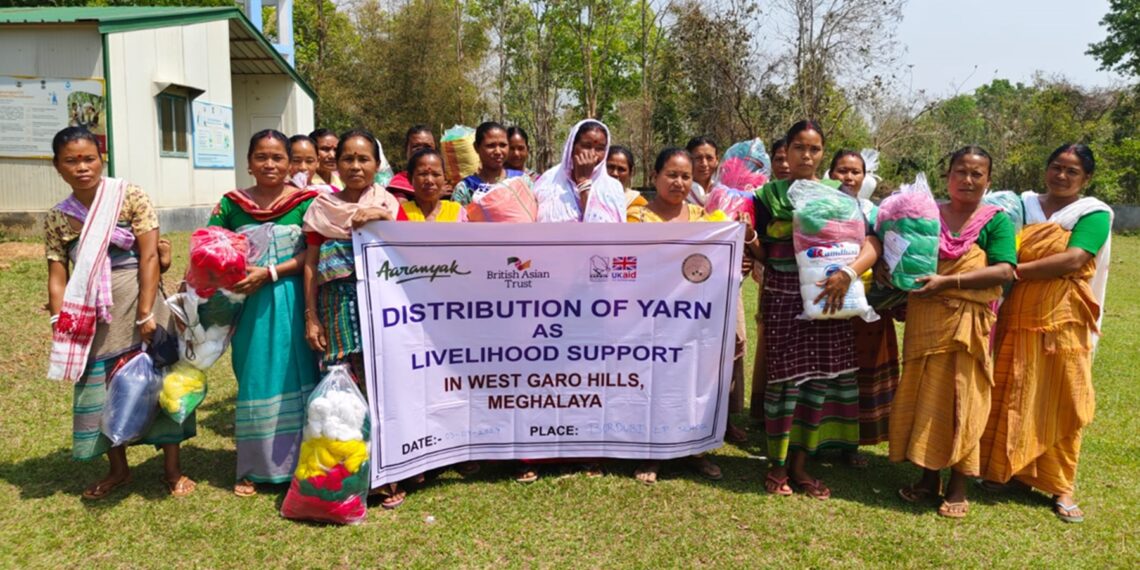GUWAHATI: In a bid to alleviate the economic strain caused by the ongoing human-elephant conflict (HEC) in West Garo Hills district of Meghalaya, a significant initiative has been undertaken to support women affected by this adversity.
Twenty-six women, who have been grappling with the challenges posed by the HEC, were recently provided with yarn to aid them in supplementing their income.
This benevolent gesture was made possible through Aaranyak and British Asian Trust with the support of the Darwin Initiative (Biodiversity Challenge Funds).
The journey towards this support began with special training sessions conducted earlier, where these women were equipped with valuable handloom skills.
The training aimed to empower these women to enhance the quality of their handloom products and effectively market them in competitive environments.
Central to the training was the emphasis on crafting unique designs to enhance product value and boost profitability.
Dr Bibhuti Prasad Lahkar, a senior conservation scientist at Aaranyak, expressed optimism about the impact of this initiative on the economic empowerment of marginalised women.
“We hope that the provision of yarn to these women, who have received our handloom training, will empower them economically by providing them with the resources to create marketable products,” he said.
He further emphasised that this initiative is a step towards fostering economic independence and promoting alternative livelihoods, thereby contributing to community development in areas affected by HEC.
The situation in West Garo Hills remains challenging, with the human-elephant conflict posing a persistent threat to both local communities and wildlife.
Encroachment into elephant habitats and the expansion of agricultural land have worsened the conflict, leading to frequent incidents of crop raids and human casualties.
Recognising the urgency of addressing these issues, Aaranyak dispatched a team of experts to engage with the affected community members in Bordubi on April 3.
Led by Anjan Boruah, the team interacted with the women to gain insights into the impact of the ongoing human-elephant conflict on their lives.
This concerted effort reflects a commitment to mitigating the challenges posed by the human-elephant conflict while simultaneously fostering economic resilience and empowerment among affected communities.















